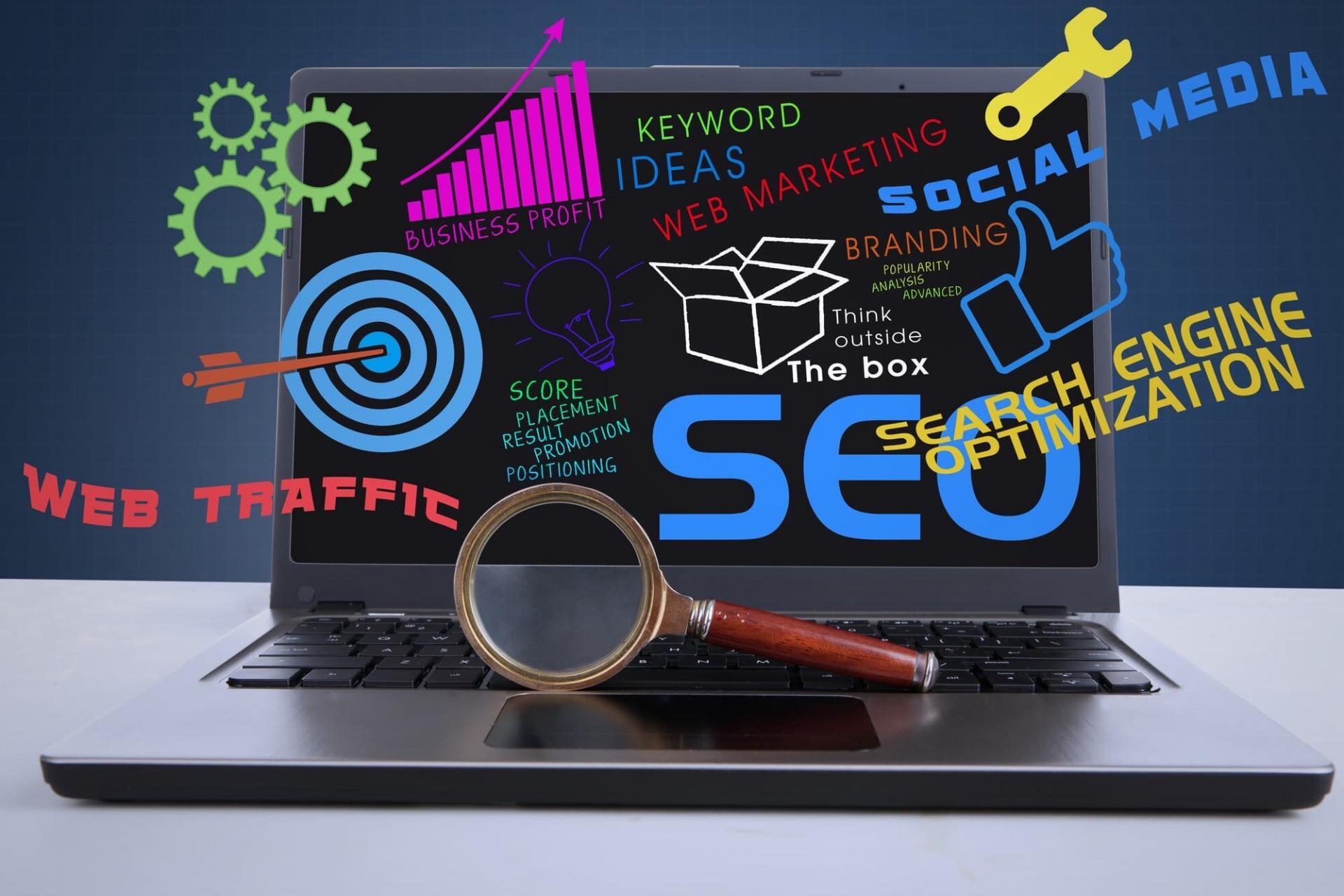Organic traffic or paid traffic, SEO vs PPC, the never-ending debate between which is better than the other. Ok, it’s possible there is no great debate and instead, people just don’t realize the two don’t have to be mutually exclusive of one another.
The truth is many people regard SEO and PPC as being separate marketing strategies and should be treated as such. But, what is there was a way for SEO and PPC to work together so your business could get both organic and paid traffic. Leads would increase and so would conversion rates.
Keep reading to find out how you can benefit from these two powerhouse marketing strategies working together to increase your leads, conversion rates, inbound traffic, and revenue.
What is SEO?
SEO stands for search engine optimization. Through the strategic placement of keywords naturally into website content (web pages, blog articles, landing pages) the website will become optimized for ranking on search engine results pages (SERP). Essentially the more Google’s algorithm likes a webpage or blog article, the higher it will rank when a user searches using the associated keywords.
Keywords are really important to SEO. They help to determine how best to rank web content. Think of it this way, it doesn’t make sense for a plumber’s blog articles to be ranked against an electrician’s landing page. Neither have anything to do with each other. Also, a customer who searches for a plumber would be confused on why they were being shown a landing page for an electrician as the number one result.
Instead, keywords help to determine how the web content is ranked, what content it will be ranked against, and to entirely ignore those websites that appear to be spammy.
The better the keywords used and the better they flow throughout the content, the better the chance of ranking high on a SERP. And ranking high on a SERP will help to increase traffic, customer leads, and conversion rates.
What is PPC?
PPC stands for pay-per-click. Meaning a business sets up a Google Adwords account and runs an ad campaign. The ad will run until the budget you placed is gone. However, you will only be charged for each click of the link. Hence, pay-per-click.
PPC does not rely on keywords the same way SEO does. PPC is trying to increase the amount of organic traffic to the website. Instead, PPC uses keywords to ensure visibility by users looking for similar products or services. However, the link on the SERP will not be listed among the organic results.
PPC is the ads you see at the top of the results page that aren’t numbered and usually say “ad” or “advertisement.” Those are the PPC ad campaigns businesses have created. PPC allows businesses the opportunity to buy traffic, essentially.
However, the more the increase in traffic and link clicks through the ad the more money the business will have to pay. Either until they end the campaign, or they hit their established budget which is met and the ad is taken down. However, that may require launching a new ad to capitalize on the increases.
SEO and PPC Working Together?
Since both deal with internet traffic in an effort to increase leads, conversions, and market exposure, it’s not too far of a stretch to believe they could work well together. But would it be worth investing in both? What’s the benefit?
There are a few ways that combining SEO and PPC could benefit your overall marketing strategy.
Shared Keyword Data
One of the many benefits worth mentioning at the top of the list is the shared keyword data between both SEO and PPC marketing campaigns. With both campaigns running simultaneously you’ll get double the data to analyze, ultimately determining which keywords have higher conversion rates and where and incorporate this information into your overall strategy.
When it comes to determining which campaigns or keywords are successful and which are not monitoring the data is key, and there is no such thing as too much data. With the shared keyword data benefit, you’ll be able to paint a better picture of how successful your campaigns are and how best to modify your overall marketing strategy if needed.
PPC Can Be Used to Inform SEO Strategy
Using your PPC campaign to test keywords, titles, and meta-data is a great way to gain insight into your SEO strategy. Unlike SEO, which can take quite a lengthy amount of time to see results, PPC will yield results almost immediately.
The information gathered from the PPC campaign can be used to guide and enhance your SEO strategy. Typically when you want to try out a keyword it could be months before you’ll see enough organic data to determine if it is successful or not. However, with PPC the results are immediate.
You’ll be able to test a new keyword, title, or meta-description, -title, or -data in your PPC campaign determine which one is a success and use that in your SEO campaign to help increase your organic ranking results and organic traffic.
Control Negative Reviews and Publicity
With their powers combines SEO and PPC can even polish up your image should a customer leave a bad review or bad press begins to circle around your business and its name.
In this case, you’re not so much using keywords and ad campaigns to drive more customers to buy a product or service. Instead, you’re using keywords and ad campaigns to drive customers to where they can hear your side of the story. SEO and PCC together can be used to tell your story.
As an example, a business that sells frozen meats has been mentioned in the media lately as being connected to a salmonella epidemic. The company could run ad campaigns and SEO campaigns to drive people who search for ‘salmonella epidemic” to a page on the company’s website that explains what the company is doing to prevent this from happening again and to help those already affected.
The company was able to tell their side of the story because they controlled where people would be directed to first by combining SEO and PCC together.
SERP Rankings
This benefit should be obvious but just in case, SEO and PPC working together can help to increase exposure on SERPs. Typically when one campaign becomes successful people will tend to lessen efforts on the other. However, by combining the two you double your exposure and chances at increasing traffic.
When both SEO and PPC campaigns rank high on SERPS, PPC is able to pick up the clicks that SEO missed. However, this does not occur in the reverse. In fact, when PPC ads are paused, a staggering 89% of the missed traffic from the paused ad will not be picked up by organic rankings. Even if you’re site ranks #1 organically.
Creating the Perfect SEO and PPC Combination
Today SERP rankings and having an online image a presence is crucial if a business wishes to succeed, grow, expand, and last a long time. This is why understanding digital marketing and more importantly how to use SEO to increase organic traffic and PPC to increase paid traffic.
However, the current line of thought being the two are mutually exclusive of one another and therefore can and should only act independently is holding back your business. And many more like it.
As shown above, combining SEO and PPC into one overall marketing strategy is a great way to increase traffic and conversion rates. With PPC picking up what SEO missed in terms of link clicks, and PPC providing instant results as to which keywords, titles, meta-titles, and content works, the chances of a more successful SEO campaign increase.
This in turn, of course, lends itself to ranking higher on SERPs and therefore increasing your exposure to the online community. Which SEO and PPC can also help with in terms of your online image.
Separately there is not much that either can do to change or remove tarnish or a blemish on your online image. However, together SEO and PPC create the perfect combination to control the narrative in your favor and allow you to tell your story or side of it.
Grow Your Business to the Next Level
When it comes to deciding between either or, definitely choose both and combine your SEO and PPC efforts to maximize your digital marketing strategy and get the most out of your online presence. Contact us today for more information on how you can take your digital marketing campaign to the next level. Get ready to open those floodgates!




